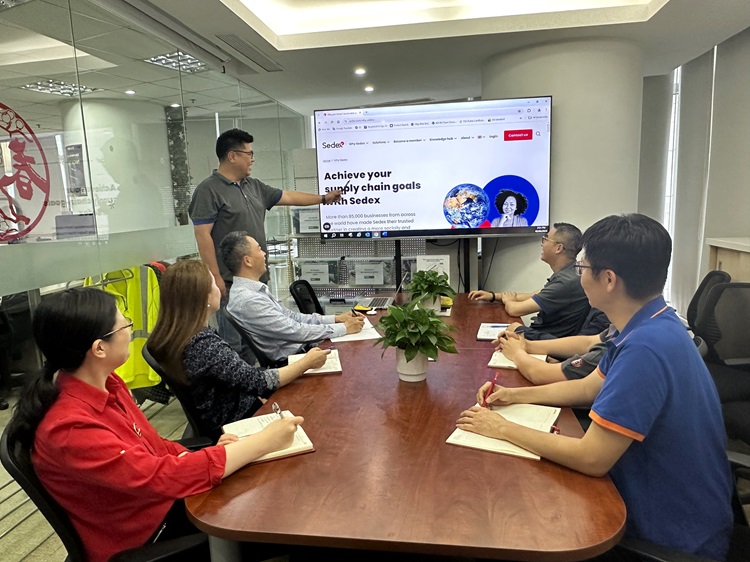
Blackwoods supports supply partners in
protecting their people

During FY24, Blackwoods took a proactive approach to engaging with its supply partners to increase their awareness of positive labour practices and support them to make improvements, with a particular focus on mitigations to avoid workers undertaking excessive working hours.
Although excessive overtime alone is not considered a modern slavery event1, experts believe it can be an indicator of forced labour in instances where it becomes a regular and expected occurrence2.
Blackwoods has taken proactive steps to identify and address excessive working hours on its own brand supply partners so that any cases identified would not progress into any confirmed cases of forced labour.
Using Blackwoods’ own Human Rights and Ethical Sourcing Framework3, the organisation embarked on a process of continuous improvement with its supply partners to enhance workers’ conditions. Specific activities included:
- helping partners to better understand and align with labour laws and global best practice
- educating supply partners (via Sedex e-Learning working-hour modules) on the value of different overtime work models that protect workers and maintain productivity
- supporting supply partners to adopt a voluntary overtime working-hour model
- implementing measures to monitor and proactively address cases of excessive working hours.
In FY24, Blackwoods used its framework and educational tools to remediate a reportable breach4 by a supply partner pertaining to working hours that exceeded 72-hours per week on a regular basis and over an extended period. The remedial process led to an improved approach by the supply partner to working hours (including record keeping and scheduling) throughout its facility. Shortly thereafter, the reportable breach was formally closed and verified by a third-party auditor.
Audit findings and feedback from its supply partner indicate Blackwoods’ collaborative approach to continuous improvement is maintaining a positive relationship between both businesses, supported by clear and open lines of communication. Blackwoods’ supply partner implemented methods to monitor working hours and training to educate workers and managers about overtime regulations.
“We understand the importance of ethical labour management, working hours compliance including the definition of working hours. Ethical labour practices help companies maximise their sustainability efforts, contribute to business productivity, worker retention, and a positive company reputation.” — Blackwoods supply partner
Blackwoods believes its maturity in its human rights journey means it has a responsibility to help and support other organisations within its supply chain to look at ways they can improve their practices and is committed to continuing to do so.
1 Excessive work hours may only be considered a modern slavery event if the workers did not consent to overtime, were threatened, punished or not effectively compensated for the hours worked. https://www.ilo.org/resource/qas-business-and-forced-labour-0#Q9
2 ILO Indicators of Forced Labour: https://www.ilo.org/sites/default/files/wcmsp5/groups/public/@ed_norm/@declaration/documents/publication/wcms_203832.pdf
3 Blackwoods’ Human Rights and Ethical Sourcing Framework guides continuous improvement (wesfarmers.com.au), https://www.wesfarmers.com.au/sustainability/fy2022/our-stories/blackwoods-human-rights-and-ethical-sourcing-framework-guides-continuous-improvement#:~:text=Blackwoods%20works%20closely%20with%20suppliers,diligence%20for%20high%2Drisk%20suppliers.
4 Reportable breaches are disclosed within the annual Wesfarmers Modern Slavery Statement with broad alignment to the SMETA Guidance for the classification of critical breaches. Blackwoods identifies reportable breaches through monitoring activities, such as third-party audits, grievance mechanisms, or other activities like supplier questionnaires, surveys and supplier visits. Reportable breaches may include instances of danger to people, breach of human rights, or systemic breach of international codes or legal requirements.